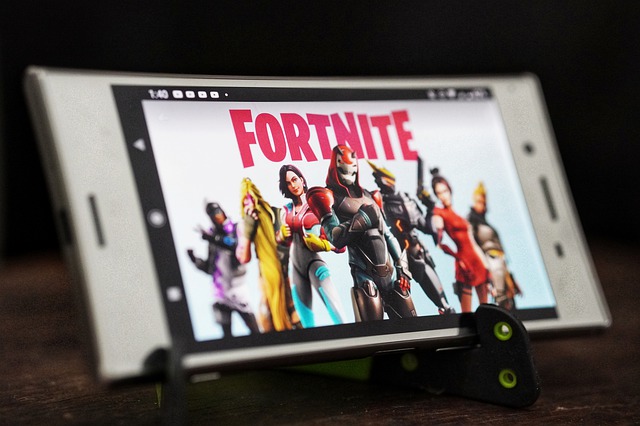Do you know what your child is doing on the internet? Are you aware of what sites they are visiting or what apps they are using? With 1 in 5 children having a negative online experience each year as a result of cyberbullying, sharing of inappropriate content, or being the target of grooming from online predators, it has never been more important for parents and carers to have a solid grasp of cybersafety concepts and to effectively manage the digital platforms used by their child.
How do I get started?
Be open with your child about online safety and engage with them on topics relevant to their age. Exploring online platforms with your child or having regular family conversations about favourite apps, games or websites is not only a great way to open the lines of communication, but to keep up to date with the apps your child is using or wants to use. Be sure to check-in with your child regularly and reassure them that they can talk to you about anything that concerns them or makes them feel uncomfortable or unsafe online. If you notice a change in your child’s behaviour after they have been online, be sure to speak to them about it.
Setting some ground rules is also a sure-fire way to get the whole family thinking about their cybersafety. Consider putting together a family tech agreement and get everyone’s input to the rules and guidelines that should be included. Some topics to consider include the types of websites that may be visited, the amount of time each day permitted to be spent online, where and when smart devices may be used, what constitutes acceptable online behaviour, and what should be done if a member of the family has a negative experience online. There should be clear consequences for breaches of this contract and they should have meaning for your child. These rules should also apply to parents – be mindful to model the digital behaviours you would like to see in your child!
…but there is so much to consider!
Websites, online platforms and apps are continuously being developed with new and old platforms going in and out of fashion – especially with children. It can seem quite overwhelming to try to keep up with the changes, but there are some simple steps you can take to set your child and your family up for success.
Firstly, understand the devices your family uses. Whether you use a smartphone, a tablet or a desktop computer, each device will have different safety and privacy controls available to you. Similarly, make sure to understand and use parental controls. These will allow you to monitor your child’s screen time and restrict access to content that is age appropriate.
Get to know the apps your child is using. Take note of age ratings and other consumer advice that will help you decide if that app is appropriate for your child to be using. Below are some short overviews of some new platforms currently used by children.
 Formerly called ‘Music.ly, Tik Tok is a social media app that allows the user to create short 3 to 15 second videos. There have been concerns about children being exposed to or creating explicit or inappropriate content and sharing it online via the app. Experts have advised parents not to be lulled into a false sense of security over the app, which many depict as a simple platform to share lip-syncing videos. The app also has an online message function that allows users to communicate in real-time, opening the door to concerns over online grooming and cyberbullying.
Formerly called ‘Music.ly, Tik Tok is a social media app that allows the user to create short 3 to 15 second videos. There have been concerns about children being exposed to or creating explicit or inappropriate content and sharing it online via the app. Experts have advised parents not to be lulled into a false sense of security over the app, which many depict as a simple platform to share lip-syncing videos. The app also has an online message function that allows users to communicate in real-time, opening the door to concerns over online grooming and cyberbullying.
Age rating: Users must be 13 years and over.
Parent controls: Yes
Information for Parents (Tik Tok)
Privacy Centre (Tik Tok)
An unofficial add-on to the Snapchat platform, Yolo allows users to ask anonymous questions of other Snapchat users. Yolo users can choose whether or not to answer the question, but if they do, the answer is posted to Snapchat stories as an image or video. As with other online messaging platforms, the concern here is the anonymity of the questioner, meaning users have no way of knowing who is asking them questions, raising the opportunity for online bullying and harassment. As the answers are publicly visible, this adds to the safety and privacy concerns. In addition, the app can access your contact list and collects information about what you post and from interactions with other platform users.
Age rating: 13+ (the same as Snapchat)
Parental controls: No
Privacy information
 A third-person shooter game allowing players to complete as individuals or teams to be the last person or team standing. Players of Fortnite progress through various levels collecting weapons and resouces and engaging in armed combat with other players. The game has an online chat function enabling players to communicate through message or voice chats. There have been a number of concerns about the negative impacts of the game on children including concerns over cyberbullying and gaming addiction. Of greatest concern is the risk of children talking to strangers online. As with any new platform, experts recommend exploring the parental controls available and playing the game with your child to understand the type of content on the platform to help you decide if it is appropriate for your child.
A third-person shooter game allowing players to complete as individuals or teams to be the last person or team standing. Players of Fortnite progress through various levels collecting weapons and resouces and engaging in armed combat with other players. The game has an online chat function enabling players to communicate through message or voice chats. There have been a number of concerns about the negative impacts of the game on children including concerns over cyberbullying and gaming addiction. Of greatest concern is the risk of children talking to strangers online. As with any new platform, experts recommend exploring the parental controls available and playing the game with your child to understand the type of content on the platform to help you decide if it is appropriate for your child.
Age rating: 13+ according to Fortnite
Parental controls: Yes (including mature content filters, auto-decline friend requests and turning off message and chat options)
Information for parents
Yubo is a location-based platform for teenagers to connect with other teens in their area. According to the makers of the app, it is designed to help teens ‘make friends’; however, it has been compared to the online dating app Tinder and has raised serious concerns for teens and parents alike. Central to these concerns is that the app does not verify the age of users (although it is believed owners of the app are working to implement this), meaning that teenagers may think they are talking to someone their own age, but may in fact be talking to an adult or someone considerably older than themselves. In addition, Yubo has been linked to both cyberbullying and sexting with a number of parents sharing stories of their children receiving requests for nude pictures to be sent using the app or via the live stream option, which is at the core of Yubo’s offering.
Age rating: 13+ (according to Yubo)
Parental controls: No
Yubo parent guide